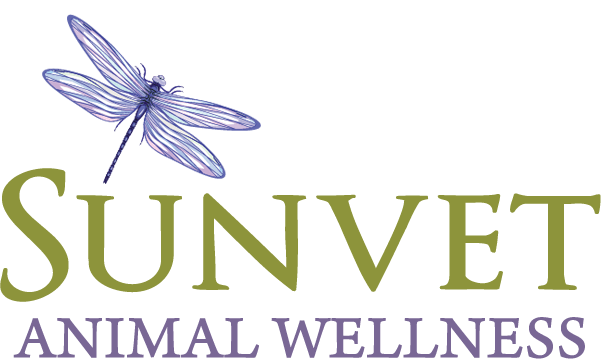
- Sunvet Animal Wellness Clinic only carries high-quality supplements. We trust that their potency and efficacy are consistent; therefore, the treatment outcome is dependable.
In last week’s post, I generally discussed the benefits of nutritional supplements for our dog and cat companions. Now, it’s time to get into the nitty-gritty! If you missed my previous post, you can catch up here: “Can Supplements Help My Animal Friend?”
When using supplements to treat patients, my top priority is to ensure that the ingredients
included in the supplement are a mix that accurately addresses my patient’s issue.
Many manufacturers of supplements for animals use a ‘shotgun’ approach by including every vitamin, mineral, herb, amino acid, or dietary substance that could possibly help a certain physical problem. Typically, there will be extra ingredients that are not needed or wanted by the patient’s body. This is why I check formulas with clinical kinesiology. This approach individualizes the treatment, enabling me to offer suggestions that are not too little or too much, but just right. I’m going to start calling this “Dr. Laurel’s Goldilocks approach”!
Sunvet Animal Wellness Clinic only carries high-quality supplements. We trust that their potency and efficacy are consistent; therefore, the treatment outcome is dependable. Many of our items are considered nutraceuticals, which means they are supplements created from whole foods and sold in medicinal forms like pills, capsules, or tablets. These powerhouses have specific medicinal or physiological benefits that go beyond plain old good nutrition. Therefore, it is important that the whole foods within are handled ethically and in a way that safeguards their nutritional value. We want our furry patients to get the maximum benefit from any supplement they consume!
If they have the appropriate ingredients for the specific dis-ease that is presented, well-made nutraceuticals are preferred over garden-variety dietary supplements.
Also, let’s remember that a ‘natural’ supplement does not equal an organic supplement.
When choosing to use nutritional supplements for your furry pals, it is important to seek the guidance of a licensed veterinarian. Like I said above, natural does not necessarily mean safe, and even remedies from our natural world can pose risks to our sweet little fluffernutters, if not used properly. Some of those risks are…
- Contraindications between different supplements that are being used
- Incorrect dosages being administered
- Surplus of specific nutrient(s)
- Lack of quality assurance in many over-the-counter brands.
Here are some guidelines to help you navigate the natural supplement world for your beautiful four-legged partner:
- Seek the guidance of a licensed veterinarian to help make informed decisions.
- Remember my Goldilocks approach – not too little or too much, but just right!
- If you can, go with high-quality nutraceuticals and 100% organic supplements. This way you have quality assurance.
- Follow the dosages indicated on the supplement bottles, unless you have a qualified individual suggesting an alternative dosage.
- Initial dosing should always be half the normal dose for at least two to three days. This will reduce the severity of any possible reaction.
If you would like to continue reading about this topic, here are three websites that provide some cross-referencing between different herbs and medications. This may help to avoid any harmful chemical or herbal interactions.
- Medscape Interaction Checker
- WebMD Interaction Checker
- Natural Database Natural Product Interaction Checker
Shine on!

